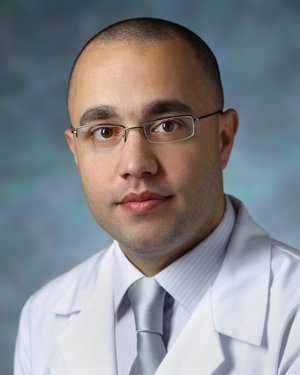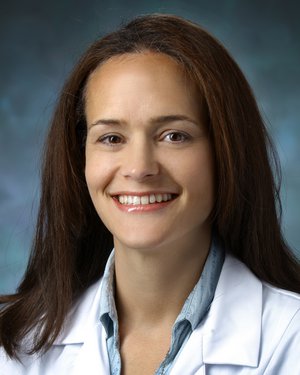Research Lab Results
-
Motion Analysis Laboratory
Our team is focused on understanding how complex movements are normally learned and controlled, and how damage to specific brain areas impairs these processes. We employ several techniques to quantify movement including: 3-dimensional tracking and reconstruction of movement, recordings of muscle activity, force plate recordings, and calculation of joint forces and torques. These techniques allow for very precise measurements of many different types of movements including: walking, reaching, leg movements, hand movements and standing balance. All studies are designed to test specific hypotheses about the function of different brain areas, the cause of specific impairments and/or the effects of different interventions. -
Mouen Khashab Lab
The Mouen Khashab Lab performs clinical research on spasmatic esophageal disorders and endoscopic myotomy.
-
MRB Molecular Imaging Service Center and Cancer Functional Imaging Core
Established in 2004, the MRB Molecular Imaging Service Center and Cancer Functional Imaging Core provides comprehensive molecular and functional imaging infrastructure to support the imaging research needs of the Johns Hopkins University faculty. Approximately 55-65 different Principal Investigators use the center annually. The MRB Molecular Imaging Service Center is located behind the barrier within the transgenic animal facility in the basement of MRB. The MRB location houses a 9.4T MRI/S scanner for magnetic resonance imaging and spectroscopy, an Olympus multiphoton microscope with in vivo imaging capability, a PET-CT scanner, a PET-SPECT scanner, and a SPECT-CT scanner for nuclear imaging, multiple optical imaging scanners including an IVIS Spectrum, and a LI COR near infrared scanner, and an ultrasound scanner. A brand new satellite facility in CRB2-LB03 opens in 2019 to house a simultaneous 7T PET-MR scanner, as well as additional imaging equipment, to meet the growing molecular and functional imaging research needs of investigators. To image with us, MRB Animal Facility training and Imaging Center Orientation are required to obtain access to the MRB Animal Facility and to the MRB Molecular Imaging Center (Suite B14). The MRB Animal Facility training group meets at 9:30 am on Thursdays at the Turner fountain/MRB elevator lobby. The Imaging Center orientation group meets at 1 pm on Thursdays at the Turner fountain, and orientation takes approximately 30 min. Please keep in mind that obtaining access to both facilities requires time, so please plan in advance. -
Mukherjee Lab
The Mukherjee Cardiovascular Innovations Lab harnesses cutting-edge imaging techniques to explore cardiovascular manifestations and enhance the screening, early detection, and prediction of adverse clinical events across a broad range of autoimmune diseases. -
Multiple Sclerosis Rehabilitation Research Program
Abbey J. Hughes, Ph.D., and Meghan Beier, Ph.D., are clinical psychologists, co-investigators and grant-funded clinical researchers specializing in neurorehabilitation psychology and multiple sclerosis. Dr. Hughes' research focuses on health behaviors and their impact on cognitive dysfunction in people with multiple sclerosis. Dr. Beier's research focuses on characterizing emotional and cognitive symptoms common among people with MS, refining neuropsychological assessment techniques, and developing interventions to ameliorate or slow MS-related cognitive decline. -
Nada Alachkar Lab
Dr. Alachkar's research focuses on recurrent glomerular diseases post kidney transplantation. In particular, she has been studying recurrent FSGS post kidney transplant in several, partially NIH funded, prospective research projects that focuses on circulating factors associate with recurrent FSGS and new therapies of recurrent FSGS; in addition to the outcome of the disease. Also, Dr. Alachkar is the Chair of Banff recurrent GN working group that focus on the pathological changes of recurrent GN.
Dr. Alachkar's other research focus is incompatible living and diseases donor transplant. She has several ongoing research studies that focus on AMR and the outcome of patients with positive donor specific antibodies.
-
Nadia Hansel Lab
Research in the Nadia Hansel Lab investigates the clinical, pathophysiologic and public health aspects of pulmonary diseases, with a focus on asthma and chronic obstructive pulmonary disease (COPD). We have explored how environmental exposures, nutrition and diet, comorbidity and other factors influence the outcomes of diseases such as asthma and COPD.
-
Nae-Yuh Wang Lab
The Nae-Yuh Wang Lab concentrates on a wide range of multicenter studies and randomized controlled trials. Recent studies have focused on pediatric cochlear implantation and longitudinal data analysis. One recent study found that partnering with primary care providers to deliver weight loss programs may promote greater participant satisfaction and weight loss. Another active study is assessing the effectiveness of promising interventions to reduce race disparities in live donor kidney transplantation.
-
Nancy Codori Lab
The Nancy Codori Lab is interested in doctors and suicide, depression in medical students and the improvement of health care providers’ history-taking skills.
-
Natalie West Lab
The Natalie West Lab collaborates with Noah Lechtzin’s lab to study cystic fibrosis, with a particular focus on new resistant bacteria and their effect on the lung function of people with cystic fibrosis.





